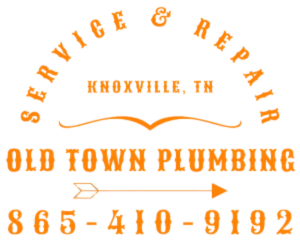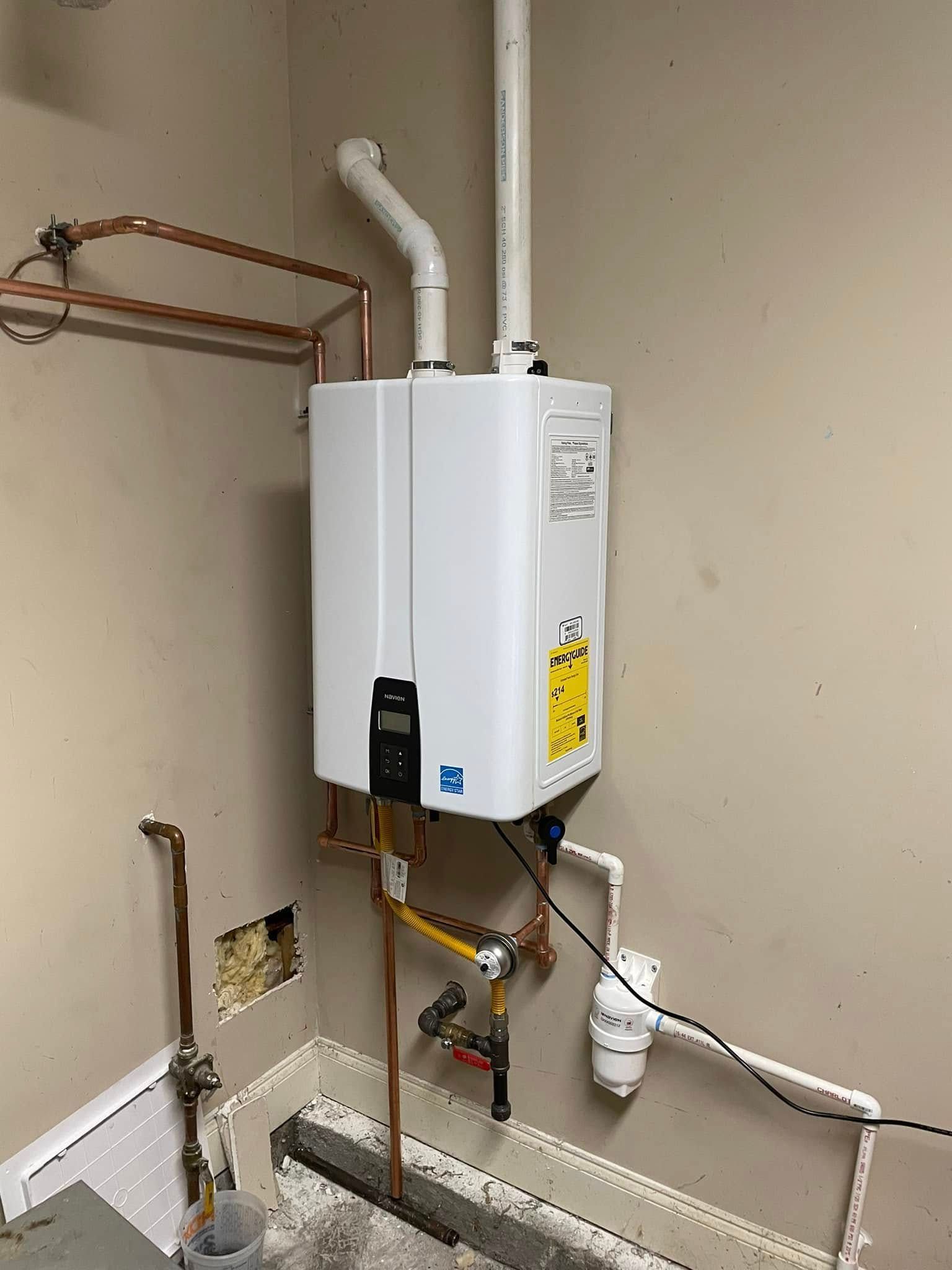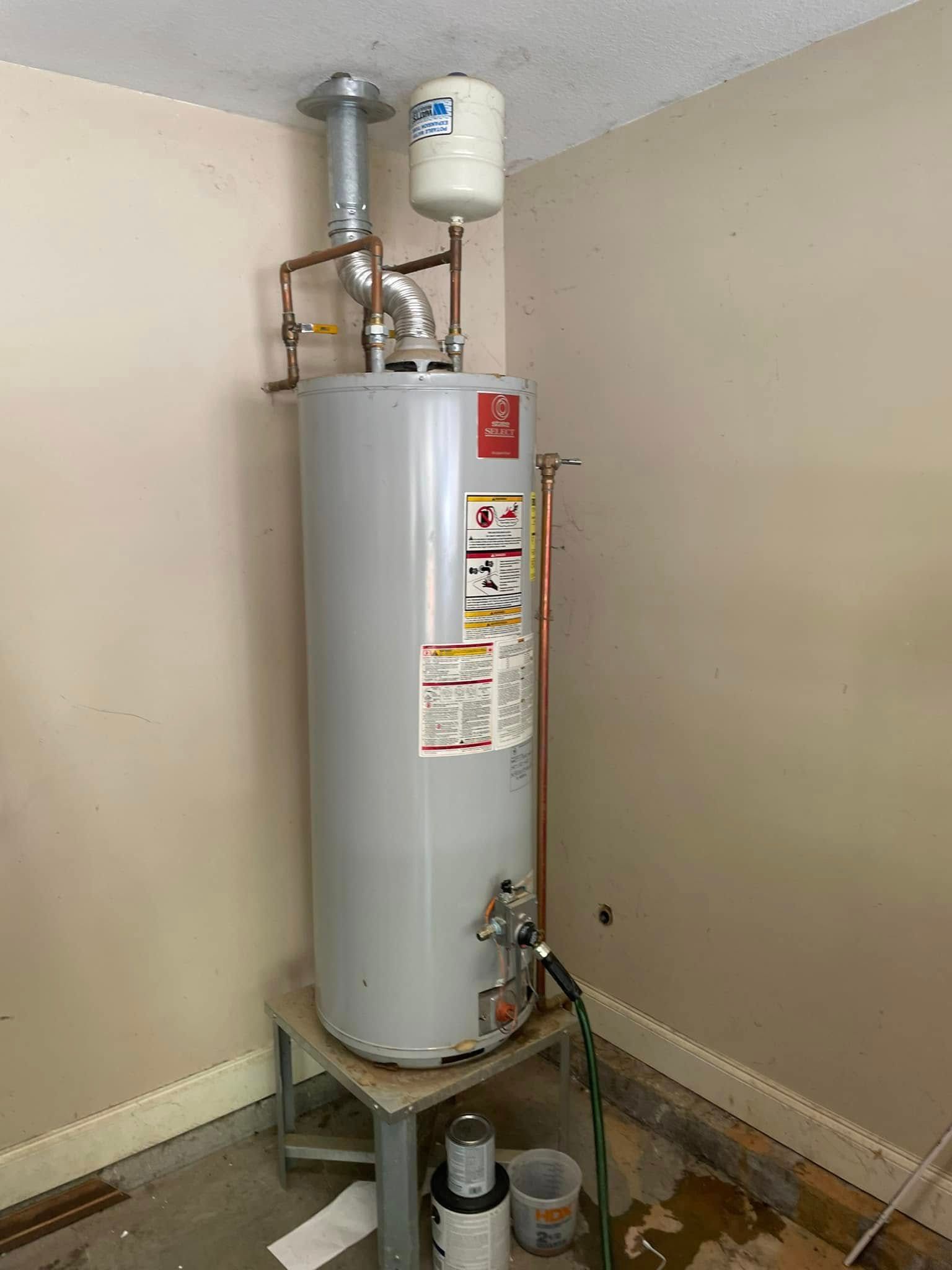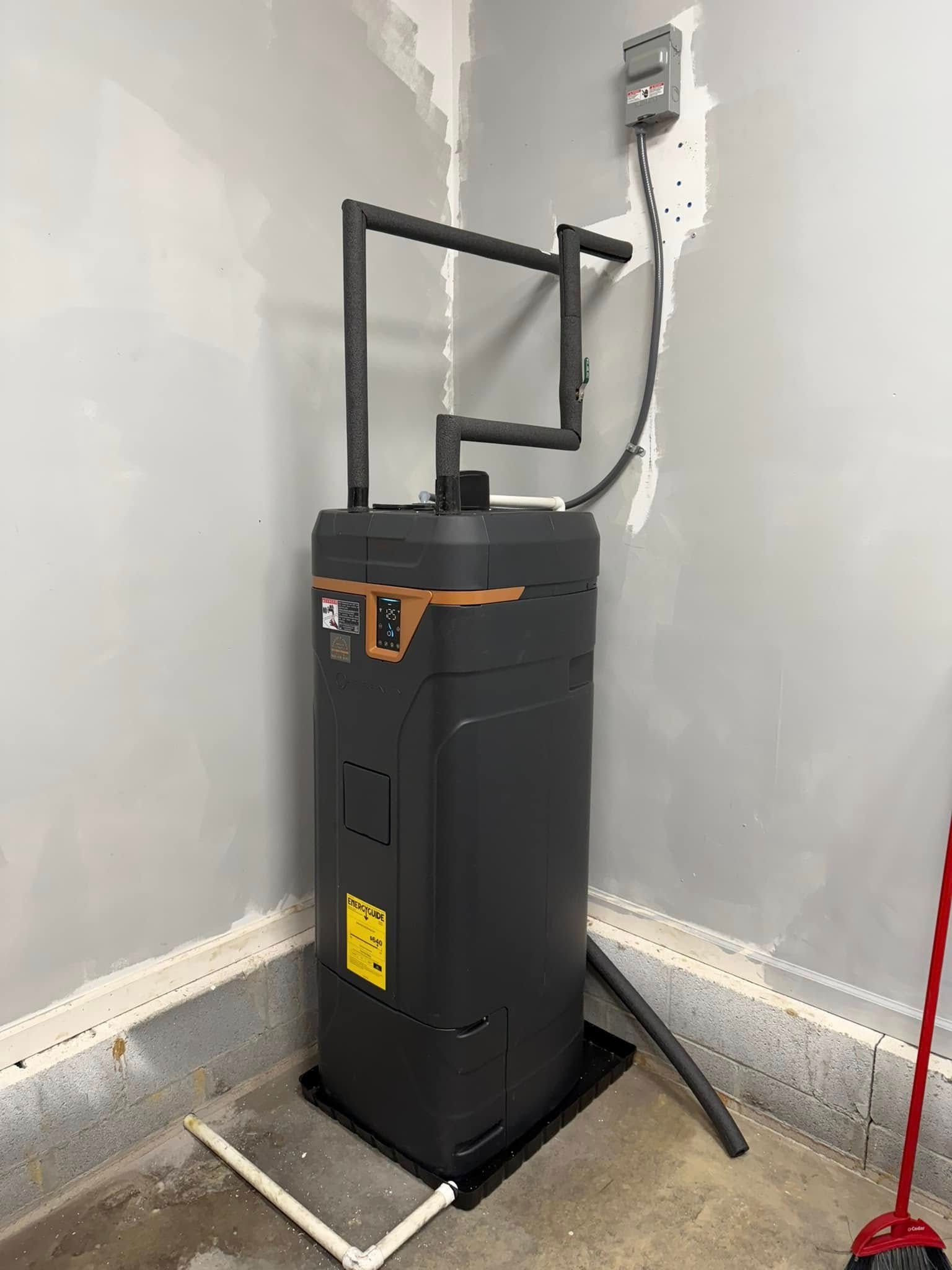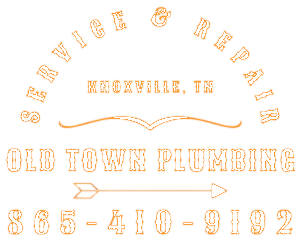How to Unclog Sink Like a Pro Without Damaging Pipes
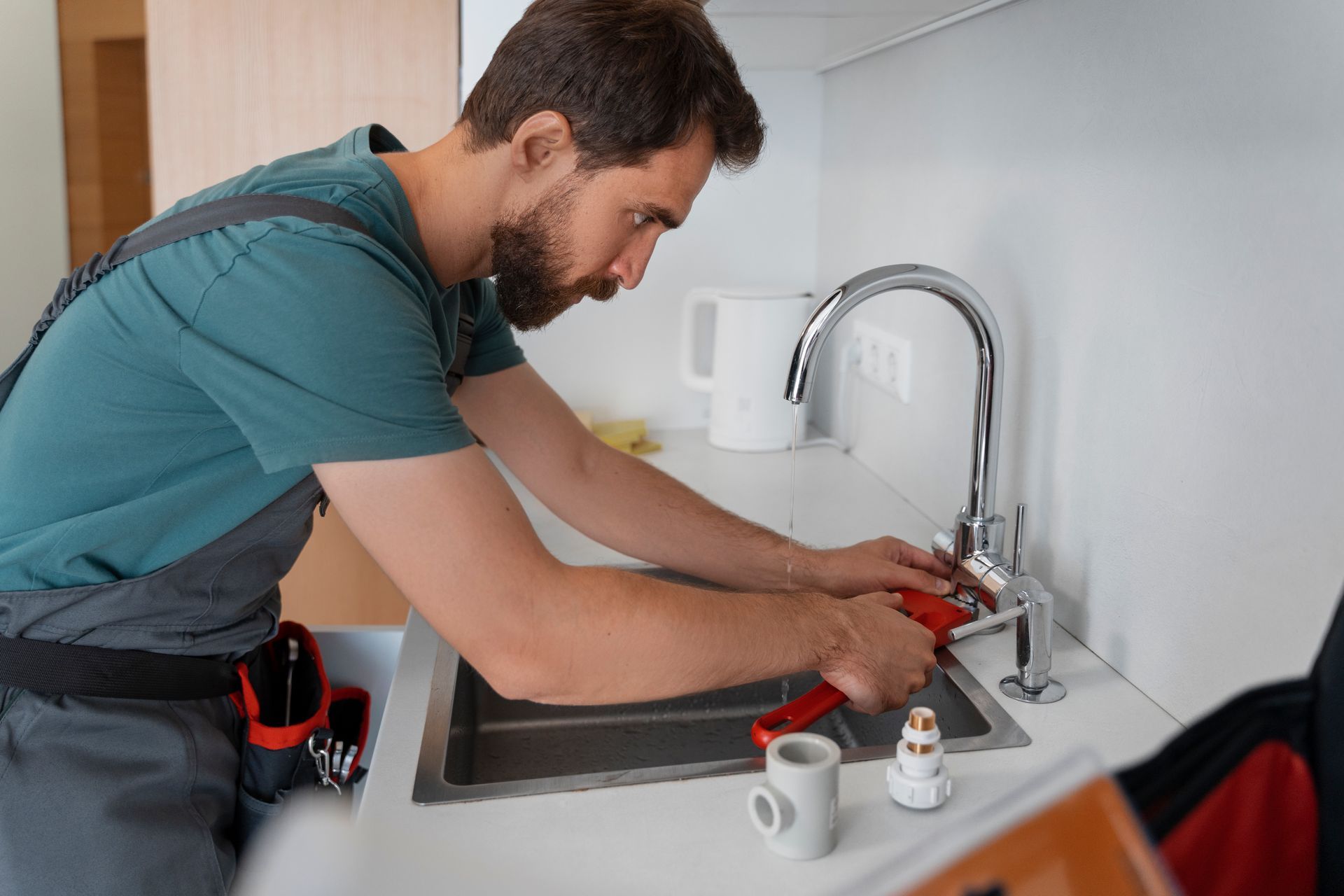
Table of Contents
- Why Sink Clogs Happen More Often Than You Think
- The Right Way to Handle a Slow or Stubborn Drain
- Natural Fixes Before Chemicals Take Over
- What Every Homeowner Should Keep Nearby
- When a Small Clog Signals a Bigger Plumbing Issue
- Preventing Sink Clogs With Smarter Habits
- How a Local Plumber Can Save You Stress and Money
Key Takeaways
- Knowing how to unclog sink drains the safe way prevents bigger damage and costly repairs.
- Natural approaches work well for most minor clogs and protect your plumbing.
- The right tools can make the difference between a quick fix and a lingering problem.
- If clogs keep coming back, there’s usually a deeper issue in the pipes.
- Professional plumbing services deliver lasting results and peace of mind.
Why Learning How to Unclog Sink Really Matters
If you’ve ever had a sink back up right before guests arrive or when you’re trying to cook dinner, you already know how frustrating it is. Water just sits there, refusing to drain, and suddenly a small inconvenience becomes a full-blown disruption. That’s when homeowners start searching for quick fixes and often end up making mistakes that cost them more in the long run.
Here’s the truth: learning how to unclog sink drains the right way is about more than convenience. It’s about protecting your home’s plumbing system. Pipes are designed to last, but harsh chemical cleaners, repeated force, or simply ignoring a clog can weaken them. Over time, that “small problem” can lead to leaks, water damage, or even a complete pipe replacement.
That’s why in this guide, we’re not just giving you a list of methods. We’re walking through what really works, what doesn’t, and how to keep your drains healthy for the long haul. Think of it as advice straight from a plumber who has seen it all—because chances are, we have.
Why Sink Drains Keep Clogging
Kitchen sinks and bathroom sinks clog for different reasons, but the frustration they cause is the same. In kitchens, it’s usually food scraps, grease, cooking oil, and soap residue. People often think running hot water after dumping grease will flush it away, but what actually happens is the grease cools a few feet down the line and solidifies inside the pipes. Over time, those layers build up until nothing else can get through.
Bathroom sinks, on the other hand, have their own culprits. Hair is a big one, especially when it mixes with toothpaste or soap scum. That sticky mess attaches itself to the walls of your drainpipes and catches everything else that passes by.
When you start noticing slow drainage, that’s your early warning sign. The gurgling noise, bad odors creeping out of the drain, or water pooling longer than usual all mean a clog is forming. Ignoring those signals is like ignoring a toothache—it always gets worse, never better.
The Right Way to Handle a Stubborn Drain
When homeowners ask us how to unclog sink drains without causing damage, we always say: start simple and safe. You don’t need to pour half a bottle of chemicals into your pipes. That usually makes things worse. Instead, try the basic methods first.
One of the easiest fixes is boiling water. It sounds almost too simple, but boiling water poured directly into the drain can melt away soap residue or grease that’s clinging inside. Sometimes it takes more than one round, but it’s a safe way to start.
If that doesn’t work, baking soda and vinegar is the next best step. Mix equal parts of each, pour them in, and let the fizzing reaction do the heavy lifting. Wait about fifteen minutes before flushing it with hot water. Not only does it loosen buildup, but it also leaves the drain fresher.
Now, if you’ve tried those and the water still won’t move, that’s when a plunger comes in handy. But here’s the trick—most people don’t use a plunger correctly on a sink. If you have a double sink, you need to seal off the other drain with a stopper or wet rag, otherwise all the air pressure escapes. Give the plunger a few strong, steady pumps and you’ll often feel the clog break loose.
If none of these work, that’s the time to reach for a drain snake or auger. These tools aren’t complicated, but they do require patience. You insert it slowly, twisting gently, until you hit the blockage. Once you feel resistance, keep turning until the clog either breaks apart or comes out with the snake.
And if the clog isn’t in your sink but in your toilet, the same principle applies—safe methods first. We’ve actually covered this in our guide to toilet repair, which shares when DIY is possible and when calling a pro saves you from bigger headaches.
Why Natural Fixes Are Better Than Harsh Chemicals
A lot of people ask if drain cleaners from the store are worth it. Here’s the honest answer: they may clear the clog, but they often do it at the expense of your pipes. Those harsh chemicals are strong enough to eat through buildup, but they also eat through the pipe lining. Over time, that weakens the material and leads to leaks.
That’s why we recommend sticking to natural methods whenever possible. Baking soda and vinegar are safe, effective, and inexpensive. Even plain salt followed by hot water can help break down grease. These options won’t solve every clog, but they’re always the first ones to try.
The other benefit is safety. Chemical cleaners release fumes that aren’t good to breathe in, and if you splash them accidentally, they can cause burns. When you use natural solutions, you avoid those risks while still keeping your plumbing healthy.
What Homeowners Should Keep Handy
If you want to be ready for the next time your sink clogs, there are a few basic tools that are worth having in your home. A good plunger designed for sinks—not toilets—is essential. Drain snakes are inexpensive and incredibly useful, especially for hair clogs in bathroom sinks. Rubber gloves are also important because, let’s face it, cleaning out drains isn’t the cleanest job.
Another tool many people overlook is a bucket. When you remove the trap under your sink, water will spill out, and having a bucket ready makes cleanup easier. With just these few items, you can handle most clogs yourself without having to wait for a professional.
When It’s More Than Just a Clog
There are times when no matter what you try, the clog won’t budge. That usually means the problem is deeper than you think. It could be a blockage in the main line, tree roots invading the pipes, or a buildup that’s too far down for simple tools to reach.
We’ve seen cases where homeowners kept trying chemical after chemical, only to find out the real issue was a broken pipe or a section of the drain that had shifted out of place. At that point, DIY fixes won’t work.
If you find yourself dealing with frequent clogs—say every few weeks—that’s a red flag. It’s a sign that the underlying issue hasn’t been addressed. This is when calling a plumber makes sense. With the right equipment, like camera inspections and hydro jetting, professionals can not only clear the clog but also make sure it won’t come back.
How to Prevent Clogs Before They Happen
The best way to deal with clogged sinks is not having them in the first place. A few simple habits go a long way. Never pour grease or oil down your sink, even if you chase it with hot water. Use strainers to catch food scraps in the kitchen and hair in the bathroom. And once a week, flush your drains with hot water to wash away any early buildup.
It’s also smart to schedule routine plumbing inspections, especially if you live in an older home. A professional eye can spot small issues before they become big ones. Think of it like going to the dentist—preventive care saves you from bigger headaches later.
Why Calling a Local Plumber Saves Time and Money
Knowing how to unclog sink drains is valuable, but sometimes you need more than DIY methods. That’s when having a trusted local plumber matters. Instead of wasting hours trying different tricks, a professional can diagnose the problem quickly and provide a lasting fix.
At Old Town Plumbing, we’ve helped countless homeowners who tried everything on their own before calling us. We know the signs of serious clogs, we have the tools to clear them safely, and we can recommend ways to prevent them from coming back. Whether it’s a kitchen sink that keeps backing up, a bathroom drain that’s always slow, or even a toilet that constantly needs plunging, we’ve seen it all—and solved it.
Conclusion: Take Care of Your Drains Before It’s Too Late
Clogged sinks are one of those problems that start small but can snowball quickly if ignored. By understanding how to unclog sink drains properly, you not only save yourself the hassle but also protect your plumbing system from damage. Start with safe, natural solutions, keep a few reliable tools on hand, and know when to call in the pros.
If your sink is giving you trouble and none of the simple fixes are working, don’t wait until it gets worse. Reach out to Old Town Plumbing today, call 314-363-6554, or email molly.porfidio@gmail.com. We’ll make sure your drains are flowing smoothly again and give you the peace of mind that comes with knowing your plumbing is in good hands.
At Old Town Plumbing, keeping your home’s plumbing healthy is what we do best.
Frequently Asked Questions
What’s the safest method for homeowners learning how to unclog sink drains?
The safest method is starting with hot water and dish soap, followed by a plunger or a simple baking soda and vinegar mix. These won’t harm your pipes and often clear common buildup without the need for harsh chemicals.
Can chemical drain cleaners damage pipes when trying to figure out how to unclog sink blockages?
Yes, chemical cleaners can corrode older pipes, eat away at seals, and even cause leaks over time. It’s better to use natural methods or call a professional plumber if the clog is stubborn.
How do I know if the problem is bigger than just learning how to unclog sink pipes myself?
If water backs up in multiple drains, if you notice gurgling sounds, or if the clog keeps returning, it could be a main line issue. That’s when you should bring in a licensed plumber.
Is a plunger really effective when learning how to unclog sink drains?
Yes, a plunger is still one of the most effective tools for minor clogs. Creating suction helps dislodge food particles or buildup, especially when paired with hot water.
How often should I maintain my drains so I don’t always need to learn how to unclog sink pipes?
Regularly flushing your drains with hot water and a mild mix of baking soda and vinegar once a month keeps buildup from turning into a serious blockage. Consistency is key to avoiding big plumbing headaches.
